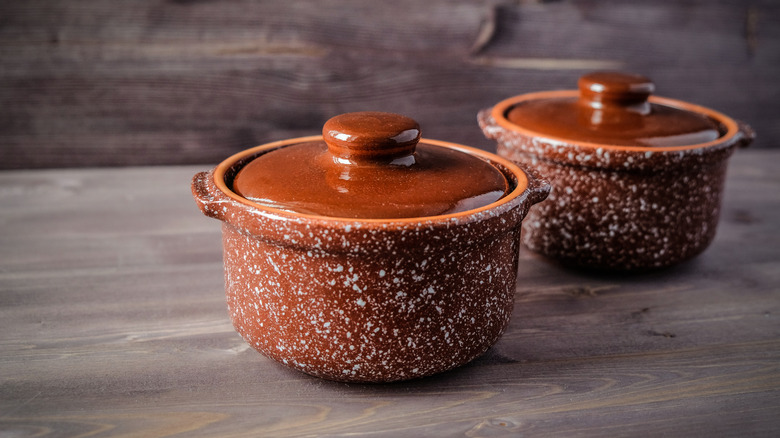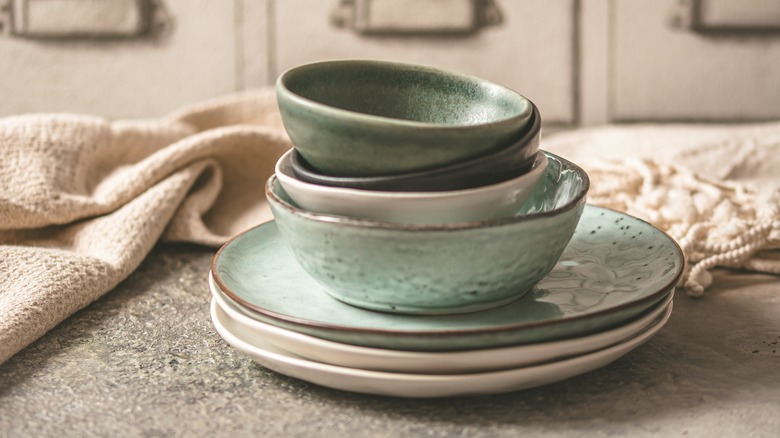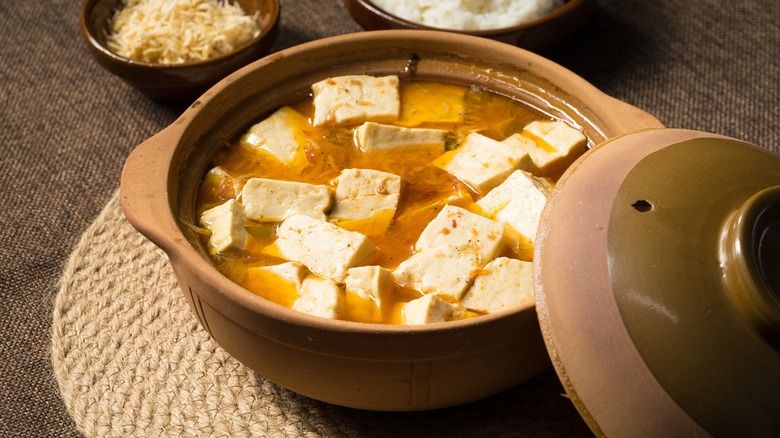How To Gently Clean Kitchen Stoneware
Kitchen stoneware makes cooking and baking a breeze for more reasons than one. The clay used to make lead-free stoneware is non-reactive – which means you can safely cook all acidic foods in it without the fear of any chemical reaction leaving a nasty tang behind. This cookware is also exceptional at regulating heat and distributing it evenly, both things that are essential to even-baking, browning, and roasting, as well as achieving that crisp but moist texture. Besides, stoneware is made from clay that is fired at a temperature of 2,000 degrees Fahrenheit, making it sturdy and durable. It can be passed down as an heirloom for generations even if it is used every day. But for kitchen stoneware to last you for years, you need to give it love, care, and a whole lot of gentle cleaning.
Before you even get to the cleaning part, however, the first thing to pay attention to is temperature. A rapid change in temperature can lead to thermal shock, which makes this cookware vulnerable to chipping and cracking. You should always bring stoneware to room temperature before you get down to cleaning it, regardless of whether it's been in an oven or a freezer. From there, how you clean your stoneware will depend on if it is glazed or not and how stained the utensil is. If it's glazed, you can use some gentle soap — but if it's not, nix the soap entirely and use baking soda to clean it.
How to clean glazed stoneware
To determine whether your stoneware is glazed or not, all you have to look for is that glossy sheen. Glazed stoneware has a layer of enamel, giving it a smooth and shiny appearance whereas unfinished or unglazed stoneware will have a more rough and coarse texture. Glazed stoneware can generally handle more aggressive cleaning than its unfinished counterparts, so feel free to bring out some soap or dishwashing liquid — but only when it really needs extra cleaning. Cover the stoneware in soapy water, give it a deep scrub with a nylon or soft-bristle brush, and rinse it.
If the stains on the stoneware are persistent despite a soapy wash, you can always make a paste of baking soda and vinegar. Scrub the stoneware with the paste and then rinse it off with warm water — that should take care of the stubborn marks. That said, it's worth noting that stains aren't always a bad sign when it comes to stoneware. Much like cast iron, stoneware needs to be seasoned in a layer of oil and heated for a few minutes so that it can turn into a non-stick surface. Oftentimes, this greasy seasoning can leave a stain or a dark spot on the stoneware — so by trying to get rid of it, you're only just stripping the seasoning off.
Unfinished stoneware requires a more gentle approach
While glazed stoneware can withstand soap and some elbow grease, unfinished stoneware requires a gentler clean. For one, soap is out of the question if your stoneware isn't covered in a protective glaze, as is vinegar. Instead, you should clean unfinished stoneware with a nylon brush, a paste of baking soda, and warm water. As a general rule of thumb, you can mix half a cup of baking soda with three tablespoons of water to make the cleaning paste. Coat the stoneware in a generous layer of the paste, let it rest for 10 to 15 minutes, scrape off any excess paste, and then rinse the stoneware with clean water.
While cleaning stoneware is a fairly easy job, there are a few things to keep in mind. Never use citrus because acidic fruits like lemon, despite their well-known cleaning powers, can ruin stoneware. Another thing to bear in mind is that while some stoneware is dishwasher safe, that's not always the case. Certain glazed stoneware may be fit for the dishwasher but most unfinished stoneware needs to be gently hand-cleaned with water. Dishwashers can also strip the layer of seasoning on your stoneware, so make sure to always re-season your cookware. As long as you take care to clean your stoneware gently, the prized utensils will last you for years to come.



